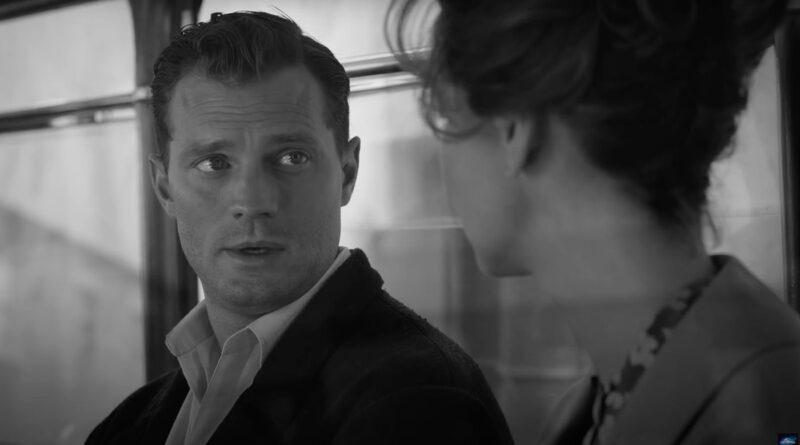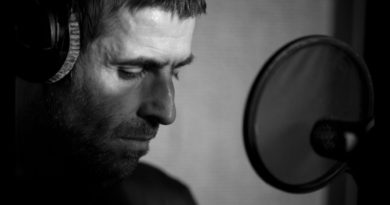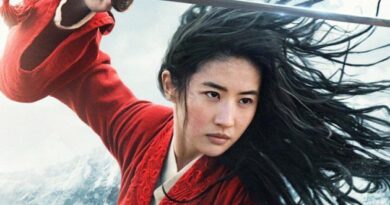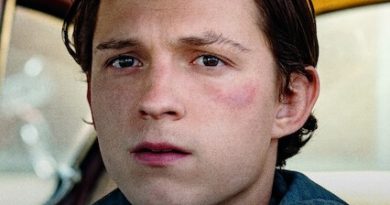Belfast is Kenneth Branagh’s most personal film
Written and directed by Academy Award® nominee Kenneth Branagh, Belfast is the humorous, tender and intensely personal story of one boy’s childhood during the tumult of the late 1960s in the city of Branagh’s birth.
Belfast is a movie straight from Branagh’s own experience. A nine-year-old boy must chart a path towards adulthood through a world that has suddenly turned upside down. His stable and loving community and everything he thought he understood about life is changed forever but joy, laughter, music and the formative magic of the movies remain.
The cast stars Golden Globe nominee Caitríona Balfe, Academy Award® winner Judi Dench, Jamie Dornan, Ciarán Hinds, and introduces the ten-year old Jude Hill. Dornan and Balfe play a passionate working-class couple caught up in the mayhem, with Dench and Hinds as the quick-witted grandparents.
In the summer of 1969, nine-year-old Buddy knows exactly who he is and where he belongs. He’s working-class, North Belfast, happy, loved and safe. His world is a fast and funny street-life, lived large in the heart of a community that laughs together and sticks together.
Where your extended family lives in the same street and where it is impossible to get lost because everyone in Belfast knows everyone else, or so it seems. And in every spare minute, in the darkness of movie theatres and in front of the television, American films and American TV are the transporting and intoxicating currency of Buddy’s inner life and of his dreams.
But as the 1960s stagger to a close, even as man stands on the moon itself, the dog days of August turn Buddy’s childhood dreams into a nightmare. Simmering social discontent suddenly explodes in Buddy’s own street and escalates, fast. First a masked attack, then a riot and finally a city-wide conflict, with religion fanning the flames further afield. Catholics vs Protestants, loving neighbours just a heartbeat ago, set on to be deadly foes now.
Buddy must make sense of the chaos and hysteria and of this new physical landscape of lockdown, peopled by heroes and villains, once only glimpsed on the cinema screen but now threatening to upturn everything he knows and loves as an epic struggle plays out in his own backyard.
His Ma struggles to cope while his Pa works away in England, trying to make enough money to support the family. Vigilante law rules, innocent lives are threatened. Buddy knows what to expect from his heroes – he’s spent hours in front of Westerns like High Noon and The Man Who Shot Liberty Valance – but can his father be the hero he needs him to be? Will his mother sacrifice her past in order to protect her family’s future? How can his beloved grandparents be kept safe? And how can he love the girl of his dreams?
The answers lie in Buddy’s compelling, funny, poignant and heart-breaking journey through riots, violence, the joy and despair of family relationships and the agony of first love, all accompanied by the dancing, music and laughter that only the Irish can muster when the world turns upside down.
Because what else can Buddy do? This is his only world. This is Belfast.
Kenneth Branagh:
“Belfast is a city of stories,” says Branagh “and in the late 1960s it went through an incredibly tumultuous period of its history, very dramatic, sometimes violent, that my family and I were caught up in. It’s taken me fifty years to find the right way to write about it, to find the tone I wanted. It can take a very long time to understand just how simple things can be and finding that perspective, years on, provides a great focus.
“The story of my childhood, which inspired the film, has become a story of the point in everyone’s life when the child crosses over into adulthood, where innocence is lost. That point of crossover, in Belfast in 1969, was accelerated by the tumult happening around us all.
“At the beginning of the film, we experience a world in transition from a kind of idyll – neighbourliness, sunshine and community – which is turned upside down by the arrival of a mob who pass through like a swarm of bees and lay waste to this peace. When they’ve gone, the street is literally ripped up by worried people who now feel they have to barricade themselves against another attack, and that is exactly how I remember it.
“I remember life turning on its head in one afternoon, almost in slow-motion, not understanding the sound I was hearing, and then turning round and looking at the mob at the bottom of the street and life was never, ever, ever the same again. I felt that there was something dramatic and universal in that event because people might recognise a crossover point in their own lives, albeit not always as heightened by external events.”
Branagh sat down to write the film during the first lockdown of the pandemic in 2020. “As the story percolated inside me, I realised that it was not only about a very recognisable small family group in a stressful situation, facing some big life choices. It was also about a different kind of lockdown, inside the barricades at the end of our street in 1969 and inside the constraints that were tightening around the family as they struggled with the decision about whether to stay or to go.
“So, some of the circumstances when the story is set reflected and resonated with today’s preoccupations around the pandemic – confinement and concern for the safety of yourself and your family.”
Looking for a way to describe his approach to the story, Branagh was struck by the way Pedro Almodóvar described his film Pain and Glory. “He called it auto-fiction. It was based on his own life but fictionalised to some degree and that’s what I’ve done here. I’ve written it very much through the eyes of a young boy, Buddy, who is a fictional version of me.
“He is starting to filter his experiences through exposure to a lot of films and TV and many other imagination- based encounters and stories. Those big screen images had an enormous impact on the development of my imagination and I wanted to show Buddy having those same experiences.
“He loves Westerns and Belfast had something of the Western town about it so at times I did feel as if I was writing a Western that was being constructed in Buddy’s mind. The films he is watching have a clear sense of good guy vs bad guy, good vs evil, and he is able to latch onto that as he looks at the bad guy who lives at the end of the street who he sees punching people and who might even have a gun.
“So, it is not an accurate version of anyone’s life because it is the version that is playing inside Buddy’s head. Through the lens of time, 50 years on, there’s no question that what Buddy sees isn’t precisely what I saw but there’s certainly a poetic truth inside what emerges, which comes out of something authentic and which I think is the stuff of most drama. But always, the point of departure for everything in the film, is the imagination of that nine-year old boy.
“I hope that audiences will be entertained by Buddy’s story. There is a certain spirit and a vitality in Belfast that I hope is reflected in the film, along with a very life-affirming humour. I hope people feel the joy and sometimes the sorrows of the city and what happens to the family and that they both recognise it and sympathise with it and understand, by looking at the reflections of other lives, to feel that we are not alone. If that’s what people get from the film, I would be thrilled.”
Once the screenplay was finished, in the spring of 2020, it moved very swiftly into production. Casting and pre-production took place in the summer and the film was one of the first to be allowed to start shooting, on locations in Northern Ireland and England.
“We tried to find the positive aspects of filming in a pandemic,” says Branagh “and one of them was that because the cast had to live in a bubble, a sense of family was very quickly engendered which was so central to what we were after. The two boys, Jude Hill (Buddy) and Lewis McAskie (Will), became like real siblings very quickly and bonded easily with the character of Moira, played by Lara McDonnell.”




